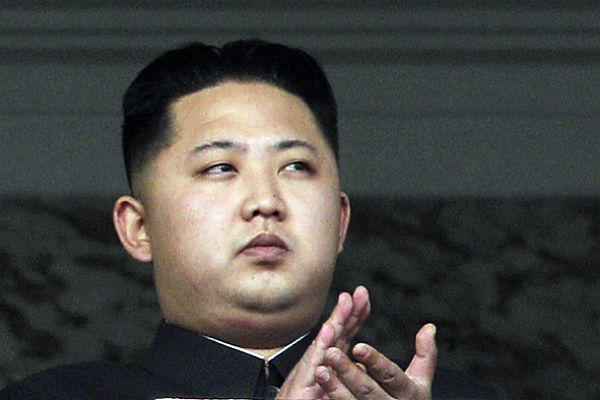
Friday marks the 69th anniversary of the ruling North Korea's Workers' Party, and there is still no sign of supreme leader Kim Jong Un. There have been no sightings of the 31-year-old in public since attending a concert with his wife on Sept. 3, and there has been no word on his whereabouts from North Korea's state media.
This morning, Reuters reported that an anonymous source with access to North Korea's leadership said Kim injured his ankle or knee during routine military drills in late August or early September.
"He ordered all the generals to take part in drills and he took part too," the source said. "They were crawling and running and rolling around, and he pulled a tendon," the source said. "He limped around in the beginning but the injury worsened."
According to CNN, three top North Korean officials made a unanticipated trip to South Korea over the weekend, but it is unknown if this was planned by Kim or a sign that he has lost power. The visit follows a weekend of gun fire exchanged between North and South Korean patrol boats.
South Korea's defense minister has said that Kim is not in the capital city of Pyongyang.
Kim, who came to power in 2011 following his father's death from a heart attack, has been unable to hide the effects of his erratic lifestyle. Over the past three years, he has gained a substantial amount of weight, and is believed to be battling gout. In July, he was seen walking with a noticeable limp from an unknown ailment, which may have caused the tapering off of his public appearances.
As his absence continues, rumors of who's in charge of North Korea are swarming though the country appears to be operating as usual.
"Kim Jong Un is in total control," said Reuter's anonymous source, who has ties to Pyongyang.
While one defector from North Korea told CNN that Kim has been pushed out of power by the secretive Organization and Guidance Department, others have a different theory.
North Korea Intellectuals Solidarity, a group of defectors living in the South, speculates that Kim's younger sister, Kim Yo Jong, has risen to power. Educated in Switzerland like her older brother, she is reported to hold a position of power in the Workers' Party, even though she is often seen seated behind him in photos.
The Kim dynasty is notorious for its lavish lifestyle and unfortunate poor health - early onset diabetes, ankle problems and battles with weight. Kim Jong II and Kim II Sung, his father and grandfather, were known for their drinking, smoking and womanizing. Each also suffered from mental instability.
Kim has killed members of his own family as a result of fear surrounding the stability of his governmental system. He is reported to have had his own uncle thrown naked to a pack of more than 100 starving dogs as a form of execution.
"Paranoia, narcissism, and an abnormal attraction to violence. That was the assessment of Kim Jong-Il and Kim II-sung," Michael Green, of the Center for Strategic and International Studies, told CNN. "They were logical in their own context. They understood what they had to do to stay in power but had these psychological disorders, and it is entirely plausible that Kim has inherited them, or because of his environment, is going through similar problems himself."
A U.S. intelligence official told CNN there are no indications that Kim is seriously ill or keeping a low profile to protect his own life. It may be that the stress of leading one of the most secretive countries in the world, combined with poor health and taking on the habits of his father and grandfather, is keeping him out of the spotlight.
"Kim Jung probably combines all that plus the worst of Western pop culture - cokes and French fries - because he lived abroad," said Green.
For the past two years, Kim has celebrated the anniversary of the Workers' Party by visiting the mausoleum where his father and grandfather are buried. If Kim does end his hiding on Friday, his appearance, body language and walk will be closely scrutinized by the national media. If he remains absent, further speculation as to the state of his health and his leadership of North Korea will be questioned further.
"The longer he remains out of the public eye, the more uncertainty about him, and the status of his regime, will grow," said Curtis Melvin, a researcher at the U.S.-Korea Institute at the Johns Hopkins School of Advanced International Studies in Washington.














